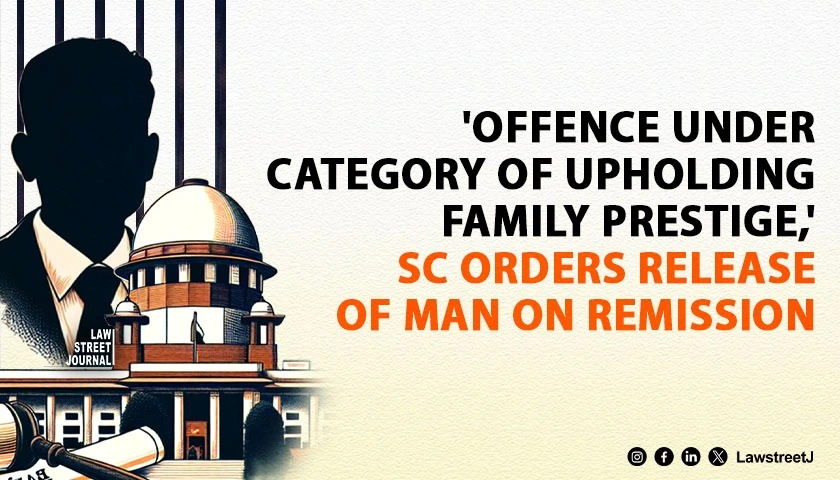NEW DELHI: The Supreme Court on Tuesday directed forthwith release of a life term convict on remission, after noting that his offence was to uphold family prestige and he ought to have been set free after 22 years under the Maharashtra government guidelines.
A bench of Chief Justice of India B R Gavai and Justice K Vinod Chandran also pointed out that he was just past 18 years on the date of the crime.
The appellant Anilkumar alias Lapetu Ramshakal Sharma was awarded life term for killing a man for the love affair with his sister, which he felt, was spoiling her life.
Having noted the guidelines and the facts of the case, the bench said, "Obviously the crime is one to uphold the family prestige, which in the given circumstances could mean the perceived tarnishing of the family’s name, though not condonable, the appellant has a valid case for remission after almost 22 years of incarceration."
The appellant sought premature release upon serving the sentence for 20 years.
Following his application, the Maharashtra government authorities sought a response from the trial court in Mumbai which held him guilty.
After the opinion of the Additional Sessions Judge that the act committed by the appellant fell within the purview of Category 4(d) of the 2010 guidelines framed for pre-mature release, the government through its Home Department directed his release only after 24 years.
Questioning the government's stand, the appellant contended he would fall under Clause 3(b) which refers to a crime committed with premeditation individually or by a gang, of a murder arising inter alia out of family prestige.
The court noted the custody certificate attached to the writ petition indicated that the appellant has been in custody for 20 years 7 months and 8 days as on September 30, 2024.
"The appellant has now been in custody for almost 22 years; short of three months. We find the appellant’s contention to be valid that the category under which the remission ought to have been considered was 3(b) under government resolution of March 15,2010,'' the bench said.
Directing his immediate release, the court felt that three months more in jail would make no difference; neither added solace to the family of the victim nor extra remorse to the accused.
Disclaimer: This content is produced and published by LawStreet Journal Media for informational purposes only and does not constitute legal advice. The views expressed are independent of any legal practice of the individuals involved.















